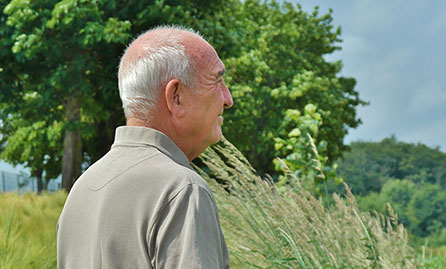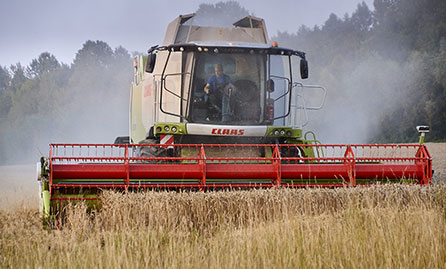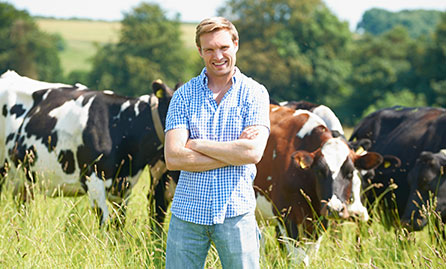OUR VISION
ARC’s vision is to promote sustainable development across the East of England. Our focus is on helping agricultural and rural business clients increase productivity and returns on investment. We believe they can do this by harnessing natural assets, scientific knowledge and technologies that maximise the opportunities of the 21st Century.
ARC will work with clients to develop and integrate economic, social and environmental policies that help them achieve their sustainable development objectives.
OUR OVERVIEW
Rural enterprises play an important role in the UK economy. They contribute to our national prosperity and wellbeing. However, the government often overlooks them when developing rural and wider economic policies.
The East of England rural economy now faces significant challenges, and some opportunities, created by the UK leaving the EU. The Covid-19 pandemic has further affected those that live and work in the rural economy to an extent nobody could have predicted.
Compounding these issues are differences across the region in the structure of the rural economy and in local population growth: from popular coastal resorts and busy commuter towns to remote, sparsely populated rural areas.
ARC’s 2030 vision for the East of England recognises and responds to these multiple pressures on those who live and work in rural communities.
THREATS FACING OUR RURAL ECONOMY
- Climate change – increasing the risk of flood and drought, leading to crop diseases, and reduced or plateauing yields from main agricultural crops
- An ageing population and workforce on farms, with the younger generation moving out of farming and out of rural areas
- Poor digital connectivity (both mobile and broadband coverage)
- Prohibitive planning regulations (particularly in the south of the region)
- Lack of access to relevant skills and business support
- Poor quality soil and polluted water sources
- The effect of Brexit on seasonal and migrant labour, and uncertainty over international trade deals
- The fragility of the supply chain and food security
- The effect of reduced footfall on farms, farm shops, garden centres and tourism businesses caused by Covid restrictions
- Mental health and wellbeing – ‘lockdown measures in 2020 have compounded the isolation of many agricultural businesses and workers, particularly young people confined to small, dispersed communities
- Lack of consistent support for rural development.
OPPORTUNITIES FOR OUR RURAL ECONOMY
- Farmland across the East of England has the potential to be highly productive
- Increasing demand for renewable energy
- Determine alternative uses of crop bi-products in biodegradable products
- Harnessing new technologies and developing productive farming on a range of different scales nationally
- Adding value to primary agricultural production to use opportunities and support to develop new products and strengthen supply chains. new product development courses
- Farm diversification – including the development of redundant farm buildings for commercial workspace, tourism activities and living space
- Business support for all rural businesses and providing vocational training programmes to meet 21st Century market demands. coaching and mentoring courses
- Increased demand from the home visitor market: but the ‘staycation’ requires improvements to tourism infrastructure to meet visitor needs
- Maximisation of opportunities in the East of England’s highly developed, world-leading scientific research base
- Exploitation of regional rural businesses willingness to innovate
- Grow consumer awareness of food quality and its impact on health
- Local community and partnership working to support rural development.
ARC aims to improve the economic sustainability of the East of England by:
- Supporting rural businesses with advice and peer-to-peer support; responding to the needs and challenges they face following Brexit and Covid-19 to advance resilience and recovery
- Ensuring that skills needs are identified, and training is provided accordingly, using various methods to ensure new knowledge and skills are embedded fully, ensuring that business and personal development are achieved
- Identifying skills needed by businesses and providing training, using various methods to embed knowledge and deliver business and personal development
- Enabling access to innovative sources of finance, including farming finance and agricultural finance
- Identifying new markets to develop and enhancing local supply chains and networks
- Promoting opportunities to develop and market tourism proposals, including environmental tourism, outside the region’s traditional tourism locations ecotourism marketing
- Promoting and facilitating agri-technology that supports the UK Government’s target of zero carbon by 2050
- Promoting innovative uses of recyclable raw materials for modern-day use.
ARC aims to enhance the diversity of rural communities in the East of England by:
- Providing agricultural business training to support farm production and the development of supply chains
- Promoting live/work units and shared occupancy workspaces for small and start-up businesses
- Establishing collaborative community food plans to help inform and implement national food strategies and meet the different needs of communities around the UK.
ARC aims to protect, promote and sustain the East of England’s natural assets. This will support long-term growth and meet the challenge of a zero carbon economy by 2050, by:
- Improving water storage and management, to create sustainable resources
- Reducing pollution by supporting new technologies
- Supporting and promoting environmental measures as a core theme within all business development activities.
- Supporting measures that enable land users to collaborate and militate against carbon and climate change
- Supporting research, development and the uptake of innovation and technologies.
IMPLEMENTATION AND OPPORTUNITIES
ARC has a deep understanding of the issues that face the rural economy and the different sectors it supports, including food, farming, forestry, tourism and agri-tech.
ARC supports the development of the rural economy by working in partnership with organisations who are leaders in their field, to develop projects that will drive forward rural businesses in the East of England.
To achieve this vision, ARC will help clients, from rural businesses to government bodies, by:
- Providing sustainability appraisals using methodical processes including benchmarking and local knowledge
- Carrying out rural proofing for local and regional strategy decision-makers to assess the impacts of policies on rural economies
- Helping develop and deliver future rural strategies
- Providing expertise and advocacy
- Providing coaching and mentoring support and training courses.













